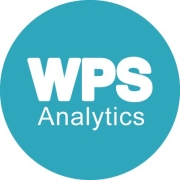Data Science Platforms empower data analysts to develop, evaluate, and deploy analytical models efficiently. They integrate data exploration, visualization, and predictive modeling in one cohesive environment.
These platforms serve as indispensable tools for data-driven decision-making, providing intuitive interfaces and scalable computing power. They enable seamless collaboration between data scientists and business stakeholders, allowing actionable insights to drive strategic initiatives within an organization. Additionally, they support a wide range of languages and frameworks, facilitating flexibility and adaptability in model creation.
What are the critical features of Data Science Platforms?In industries like finance and healthcare, these platforms are used to analyze large volumes of data to discover trends, predict outcomes, and guide resource allocation. In manufacturing, they monitor processes and improve quality control through data analytics, driving efficiency and innovation.
Data Science Platforms are useful for organizations because they simplify complex data processes and facilitate the transformation of raw data into actionable insights. This supports informed decision-making, which is crucial in achieving competitive advantage and enhancing operational performance.
| Product | Market Share (%) |
|---|---|
| Databricks | 9.6% |
| KNIME Business Hub | 8.7% |
| Dataiku | 8.0% |
| Other | 73.7% |


























































































Data science platforms are the framework or structure where the lifecycle of the data science process takes place. A data science platform contains all of the tools that an organization needs to successfully initiate and complete every stage of a data science project. It gives data scientists the tools they need to analyze the data in front of them in the most efficient and effective way possible. A data science platform achieves this by significantly cutting the time required to run analyses of the data and transform them into deployable visual models.
Data Science Platforms offer tools and environments that facilitate seamless collaboration among data scientists, analysts, and stakeholders. You can share data projects within the team, streamline workflows, and track collaborative progress in real-time. These platforms enable version control and centralized data repositories, which means you can maintain and access consistent datasets across various projects. Working in a collaborative ecosystem allows faster iteration on models and more productive strategic decision-making.
What are the critical features to look for in Data Science Platforms?When evaluating Data Science Platforms, you should prioritize features that support scalability, integration, and automation. Scalable computing resources are essential for handling large datasets efficiently. Integration with popular data processing tools and libraries ensures flexibility in your workflows. Automation for repetitive tasks like data cleaning and model training speeds up processes and reduces human error. Look for platforms that offer robust security and compliance features to protect sensitive data.
How do Data Science Platforms support machine learning operations (MLOps)?MLOps is becoming a critical component in managing and deploying machine learning models efficiently. Data Science Platforms support MLOps by offering tools for continuous integration and continuous deployment (CI/CD) of models. You benefit from features for monitoring, versioning, and scaling models in production. The platforms provide the necessary infrastructure for automated testing and validation, enabling rapid iterations and updates to models while maintaining reliability and performance in real-world applications.
Can Data Science Platforms handle real-time data analysis?Yes, many modern Data Science Platforms are equipped to handle real-time data analysis. With streaming capabilities and integration with real-time data sources, you can analyze data on-the-fly, making it possible to generate insights and actionable outcomes in seconds. These platforms often include APIs and connectors for seamless integration with IoT devices, social media feeds, and other real-time data streams, allowing you to implement adaptive models that can respond dynamically to new data.
Why is cloud integration important for Data Science Platforms?Cloud integration provides scalability, flexibility, and enhanced collaboration for Data Science Platforms. By leveraging cloud resources, you can easily scale your computational power to match workload demands without investing in physical infrastructure. It enables remote access to data and models, facilitating collaboration among geographically diverse teams. Cloud integration also offers advanced security measures, reducing the risk of data breaches while maintaining compliance with industry regulations. Embracing cloud capabilities can drastically reduce time-to-market for data-driven solutions.